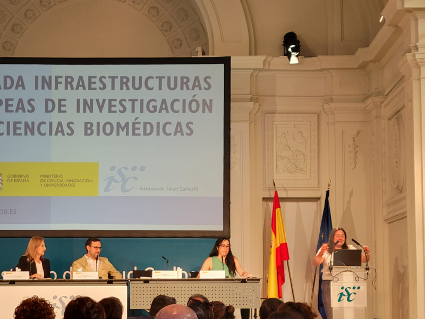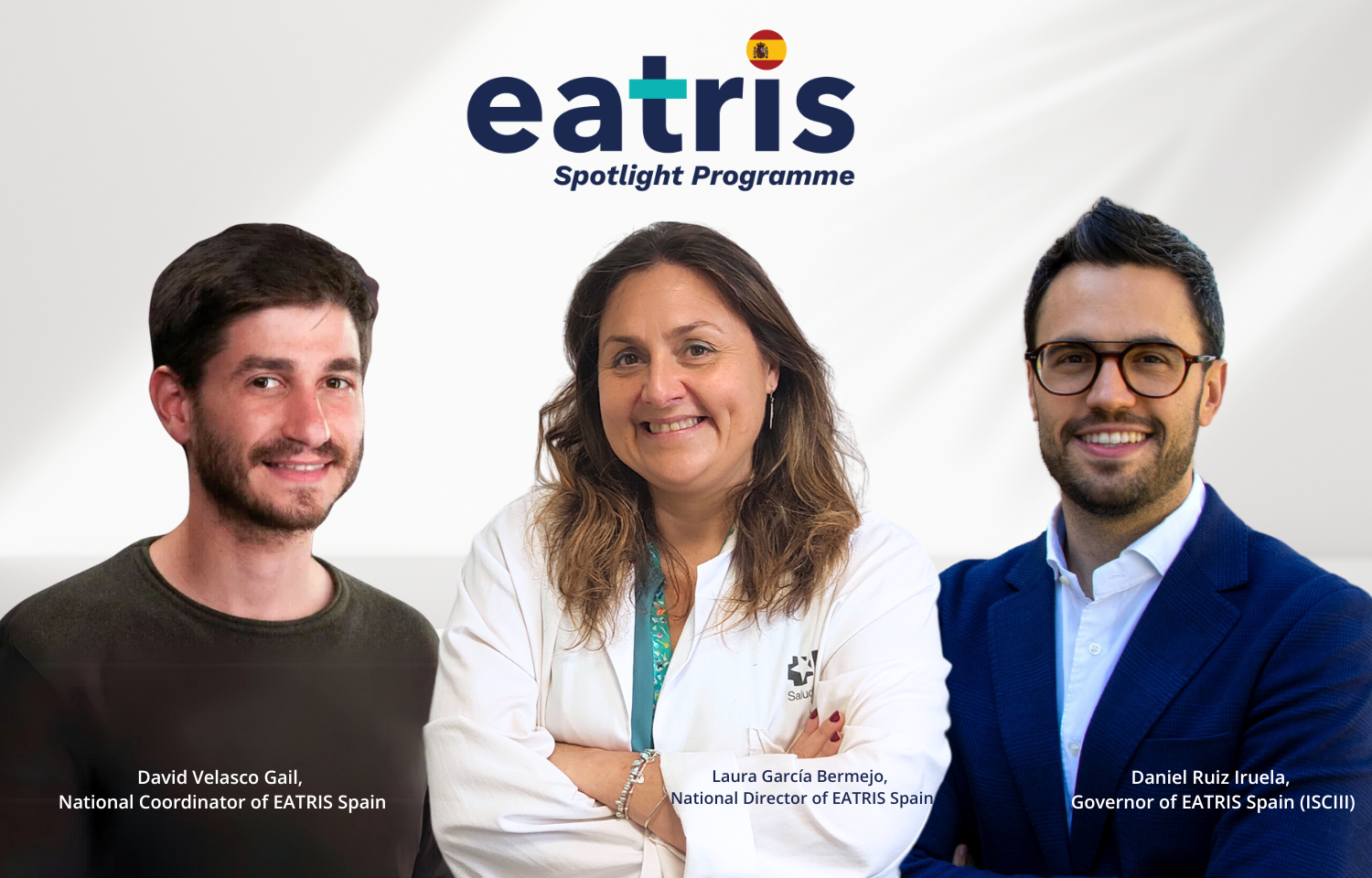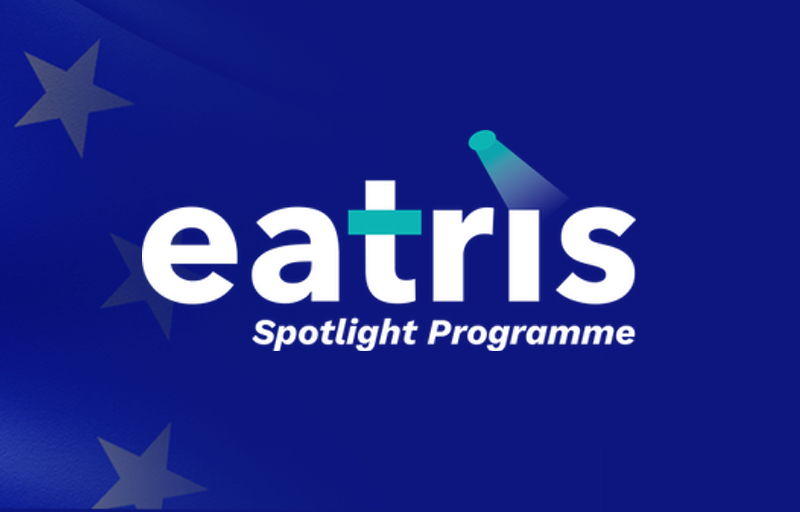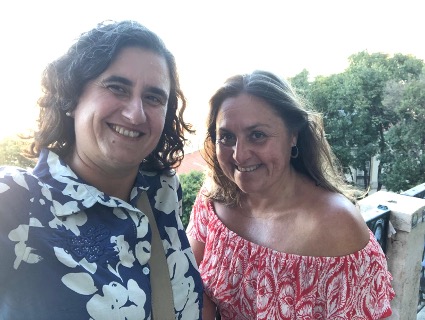The EATRIS Spotlight programme aims to showcase the unique capacities and contributions of each member country. Every six months, a different country will take centre stage, highlighting its national research infrastructure, institutions, and researchers.
The Spanish EATRIS node embarked on their Spotlight journey in May 2024 with the topic of “The Impact of Climate Change on Health”. This topic, which transcends national borders, requires global cooperation, and Spain is committed to laying the foundation for long-term action in this area. The Spotlight Programme is seen not as a finite effort but as the beginning of a sustainable line of work within EATRIS Spain and the wider EATRIS community aiming to make climate change and health a permanent priority.
The Spanish Spotlight is in full alignment with the implementation of the Spanish Node’s Strategic Long-Term Plan and revolves around three strategic pillars:

- Research projects, webinars, and training;
- Collaboration with Latin America;
- Communication and dissemination.
Additionally, two cross-cutting themes have been incorporated: Patient (and citizen) engagement, and Collaboration with other research infrastructures and EATRIS Nodes.
“The Spotlight Programme is seen not as a finite effort but as the beginning of a sustainable field of work within EATRIS Spain and the wider EATRIS community, in impactful topics for health.”
– EATRIS National Director M Laura García Bermejo
In the image: EATRIS Spain National Director Maria Laura Garcia Bermejo
presenting at the Annual Meeting for Research Infrastructures in Spain (June 2024).
Pillar I – Research Projects, Webinars, and Training
The first phase of this pillar focuses on promoting scientific collaborations among experts from Spain’s Health Research Institutes (HRI), which bring together researchers, clinicians, and patients in a collaborative environment. To this extent several meetings have been held in Spain, including with the four working groups focusing on key scientific areas of the overarching topic (detailed below), Scientific Committee and Mirror Platform Chairs Meeting (May 2024), Annual Report meeting with the Spanish Science Ministry (Sept 2024), and a presentation to Spanish Platform of Patient Organisations (Oct 2024) to name a few.
During the Spotlight and beyond, it is further envisioned that through scientific projects, training sessions, and webinars, experts from various disciplines will explore the impacts of climate change on health. While these national collaborations are solidified through the Spotlight Programme, Spain also envisions leading efforts to expand these initiatives across other EATRIS nodes in Europe, fostering a broader international impact. For example, a collaboration meeting has already been held with the Portuguese National Director Claudia Coelho Faria at the end of August 2024.

Four Working Groups
At the beginning of the Spotlight, the idea emerged to formulate specific working groups to best address the various aspects and scenarios of climate change’s impact on health. Hence four working groups were established, each focusing on a key scientific area:
Severity of Chronic Diseases in Vulnerable Populations
This working group aims to identify vulnerable populations affected by chronic diseases as a result of climate change, analyse the impact of environmental changes on disease severity and prevalence, and develop strategies to mitigate these health effects.
This Working Group is led by:
- Rafael Simó (VHIR), Chief of Endocrinology Department
- Pablo Juan Salvadores (IIS GALICIA SUR), Coordinator of Cardiovascular Research
Infectious Diseases and Vector Redistribution
The focus here is on studying the spread of infectious diseases linked to changing vector patterns due to climate change. The group will be working on predictive models to anticipate the spread of vector-borne diseases and developing early warning systems and response strategies. Cross-regional collaboration, particularly with Latin American partners, is also a priority for this group.
This Working Group is led by:
- Antonio Rivero-Juárez (IMIBIC), Expert in Virology and Zoonosis
- Juan Carlos Galán Montemayor (IRYCIS), Head of Virology Section
Allergies and Respiratory Diseases
This group examines the impact of climate change on the prevalence and severity of allergies and respiratory diseases. Epidemiological surveys to better understand the relationship between air pollution, allergens, and respiratory health.
This Working Group is led by:
- María José Torres Jaén (IBIMA), Head of Allergy Department
- Juan Luis García Rivero (IDIVAL), Pneumologist, General Secretary of Spanish Society of Pneumology and Thoracic Surgery, SEPAR.
Data Management and Analysis
The data management and analysis group is focused on developing standardized protocols for the collection, storage, and analysis of data related to climate and health. This includes ensuring data interoperability and supporting the other working groups by providing high-quality data insights. The group is working on creating a centralized platform for data integration and using AI-driven analytics to generate predictive insights, supporting the three working groups above mentioned.
This Working Group is led by:
- Pau Pericás Pulido (IDISBA), Responsable for Research Plataform in Health Data
- Juan Antonio Ortega García (IMIB), Director of Pediatric Ambiental Health Unit
All the Working Groups are open to participation, currently, there are 12 HRI (IMIB, IDISBA, IRYCIS, IMIBIC, IBIMA, VHIR, IDIPAZ, IDIVAL, ISABIAL, IISFJD, BIOBIZCAIA, IIS GALICIA SUR) and the Spanish Platform of Patient Organisations. We are sure that as the Spotlight progress, many other institutions from other nodes will join us.

Funding Opportunities Monitoring
Recent developments in Europe highlight growing interest in environmental health, particularly climate change. The European Commission’s Horizon Europe and Innovative Health Initiative are key programs offering funding opportunities for projects addressing the health impacts of pollution, extreme weather events, and more. Spain’s EATRIS node actively monitors these calls and engages with key EU agencies such as DG Santé, DG RTD, and HaDEA to stay at the forefront of funding opportunities.
Through collaboration with EATRIS C&S, national contact points (NCPs), Spanish Health Research Institute (HRI) management teams, and EATRIS Spain is positioning itself to capitalise on funding opportunities. It is envisioned that specific research projects will emerge from the four working groups.
Pillar II – Collaboration on Climate Change and Health with Latin America
Recognising the global nature of climate change’s impact on health, this pillar strengthens the ties between Spain and Latin America. Through collaborative projects and initiatives, experts from both regions will work together to address common challenges. Furthermore, the collaboration with Latin America could also provide additional potential funding opportunities going forward.
A significant event in this area includes a proposed meeting at the VI Ibero-American Conference on Science, Technology, and Innovation, among other key international forums. Unfortunately, this meeting could not take place, but the Spanish node is actively seeking new opportunities for collaboration. Currently there is active participation in the Ibero-American Network of Climate Change Offices (Red Iberoamericana de Oficinas de Cambio Climático – RIOCC), fostering dialogue and collaboration with 21 Latin American countries. This network facilitates the exchange of knowledge and experiences in climate change policies and promotes the effective implementation of international climate agreements.
Furthermore, to strengthen the ties, the Governor of EATRIS Spain Daniel Ruiz Iruela visited Brazil in August 2024 and plans to visit Guatemala by the end of the year to discuss biomedical research, international cooperation opportunities, and to establish further local contacts. We are focusing our efforts on finding an appropriate date to share experiences and lessons to learn with LATAM in a very exciting workshop.

Pillar III – Communication and Dissemination
Effective communication is key to ensuring that scientific findings on climate change and health reach a wide audience, from policymakers to the general public. This pillar is dedicated to translating complex scientific research into accessible information. To this extent Spain’s HRI communication experts are working to disseminate findings through various platforms, internal channels (article on IRYCIS website) and social media (LinkedIn and X), ensuring that climate change and health are at the forefront of public awareness and action.
The Governor of EATRIS Spain has also presented to the Scientific Directors of the HRIs, engaging with key institutional stakeholders to promote the initiative. Presentations have also been made to the National Directors of other EATRIS nodes (i.e. Claudia Faria, Portugal), the Director of ISCIII, the Annual Meeting of the EU Research Infrastructures operating in the Spanish landscape, as well as to ELIXIR’s Environmental Impact Working Group highlighting progress in research, collaborations, and project developments, to actively engage for potential future collaborations.
Image: Claudia de Faria (Chair of the Board of National Directors) and Laura Garcia Bermejo (National Director of EATRIS Spain).
Additionally, the EATRIS Meets series promotes the main stakeholders of the Spotlight through interviews and dissemination of scientific articles on various topics in the EATRIS Monthly newsletter. A dedicated page featuring selected journal articles from Spanish researchers on topics related to climate change and health has been set up.
The EATRIS Spanish Node Spotlight on “The Impact of Climate Change on Health” has set the foundation for long-term collaboration and research in this crucial area. By addressing the health challenges posed by climate change through scientific research, international collaboration, and effective communication, Spain aims to establish a permanent line of work within EATRIS Spain that continues beyond this six-month initiative that concludes on 2 December 2024 with a dedicated meeting. All EATRIS National Directors and Coordinators, as well as researchers from member institutes interested in collaborating on the topic of climate change and health research, are invited to express their interest to join in Madrid for the meeting. Spain is waiting for you all!
Through the combined efforts of researchers, clinicians, policymakers, and the public, the Spanish Spotlight initiative seeks to create lasting, positive impacts on global health in the face of a changing climate.
“The Spotlight Programme focus on such a relevant topic, Climate Change and Health, will become a strategic instrument for the strengthens and cohesion of the Spanish Node”
– EATRIS National Coordinator, David Velasco Gail
















